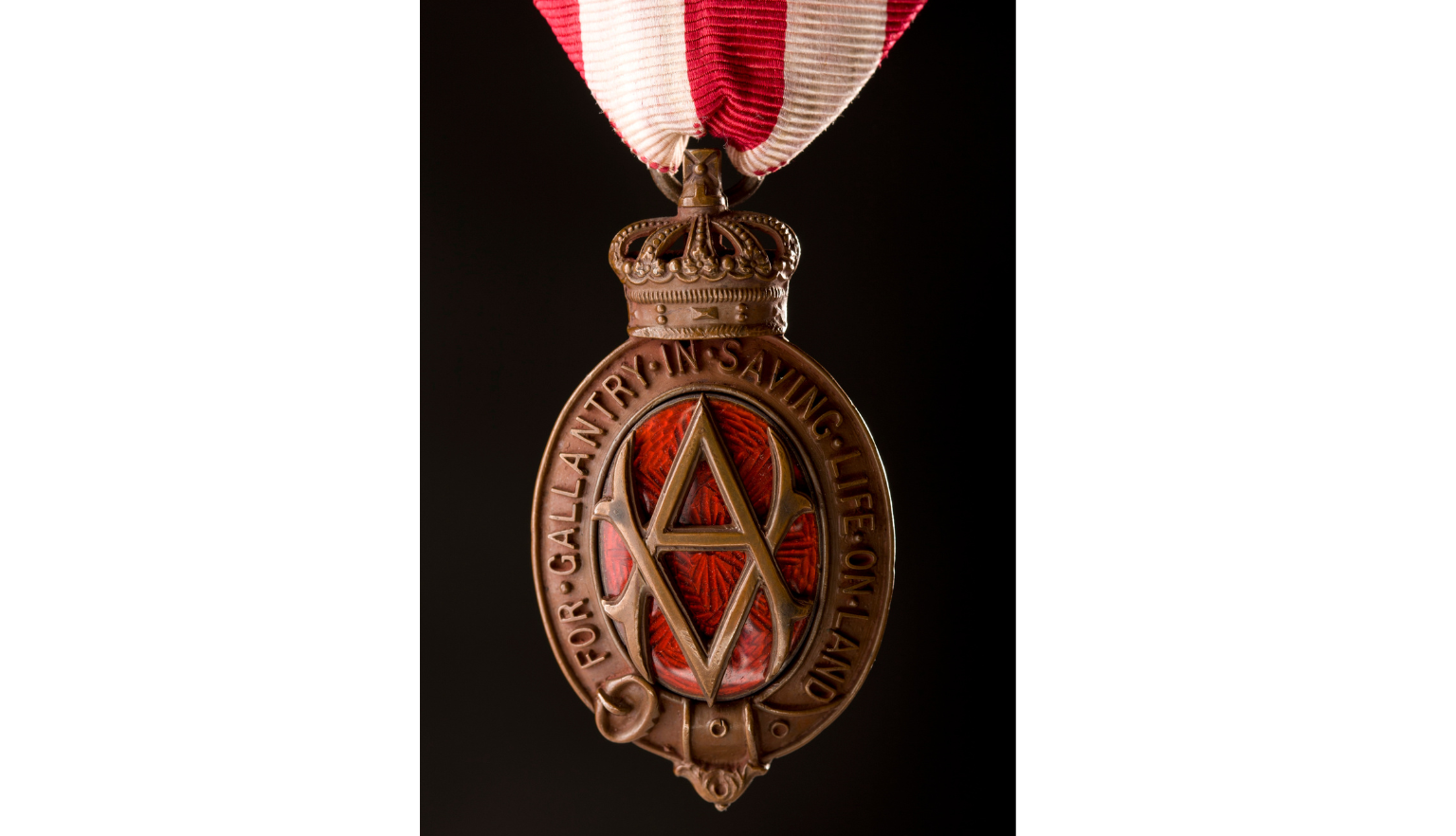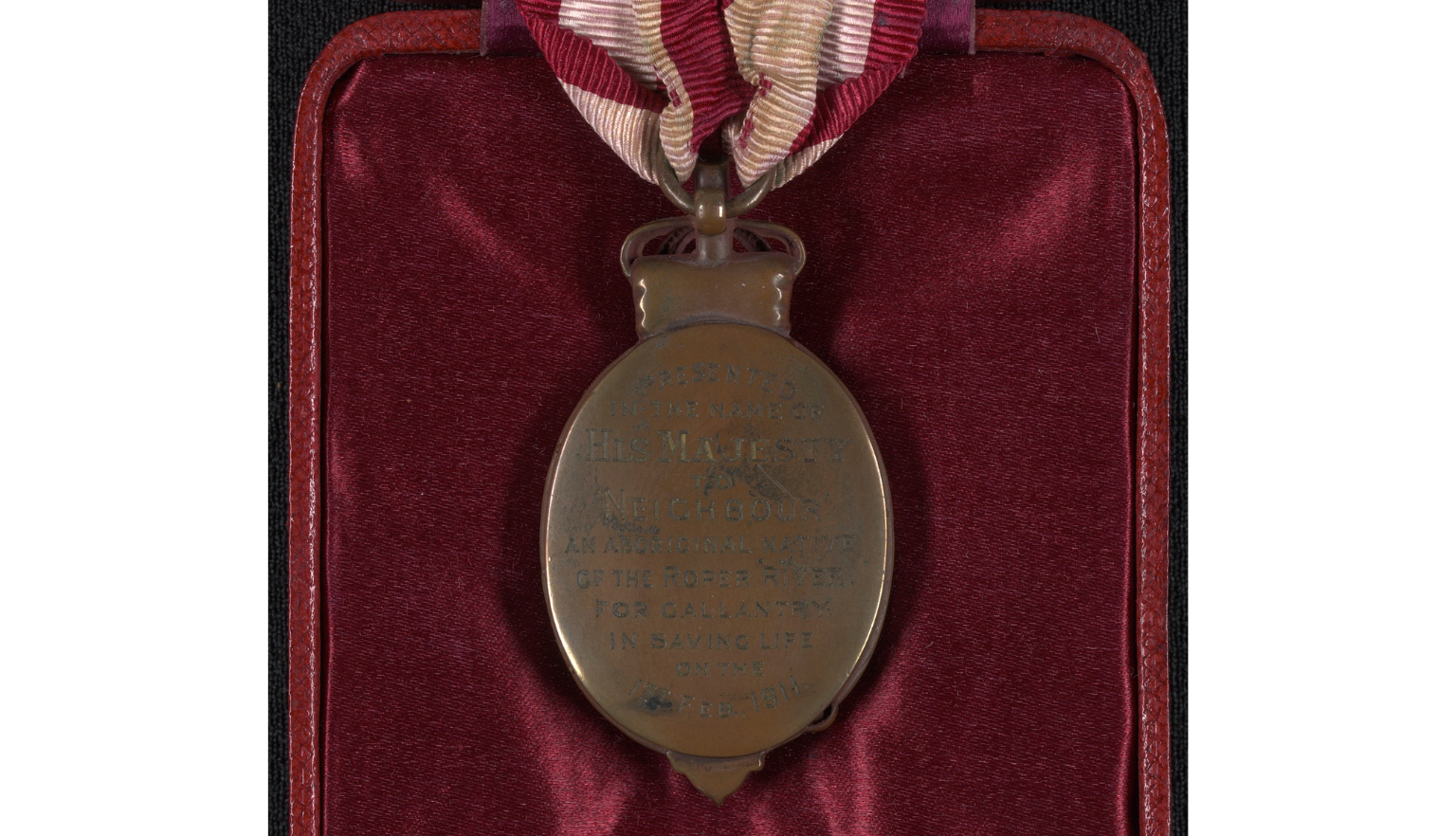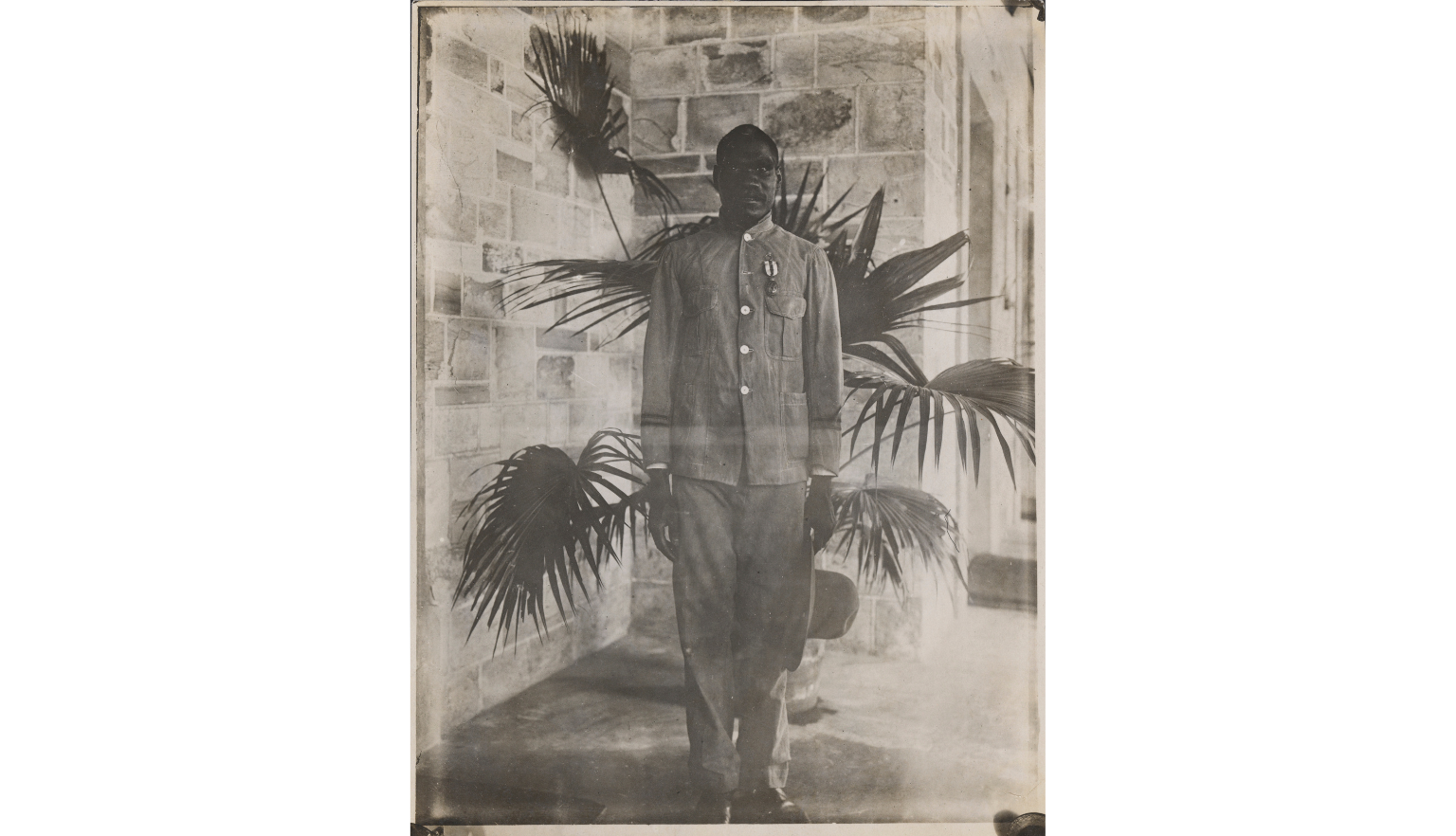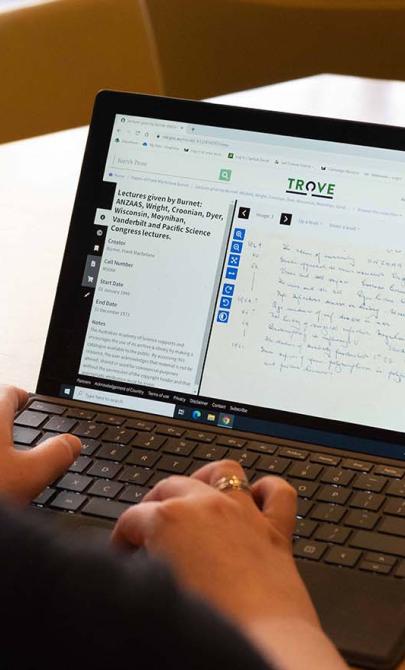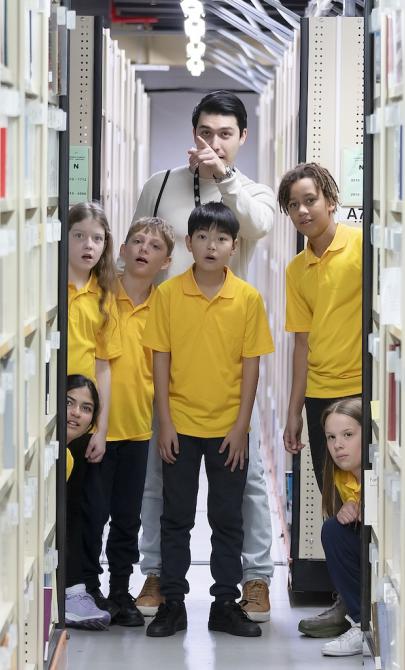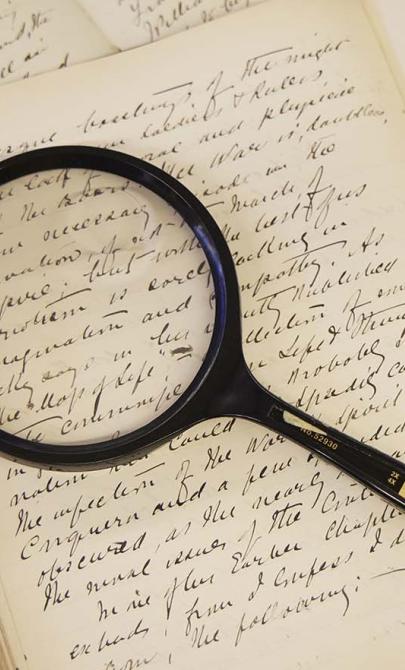Neighbour and his bravery
Aya-I-Ga’s story
Aya-I-Ga, also known as Neighbour, was a First Nations man who received the Albert Medal for his bravery in rescuing a police officer from a flooded river. The incident occurred on 1 February 1911, when Mounted Constable WF Johns was swept away in the Wilton River. Despite being in chains, Aya-I-Ga saved Johns' life, and was subsequently awarded the Albert Medal, the British Empire's highest award for saving life.
Learning activities
Activity 1: Investigate the medal
Display the medal awarded to Aya-I-Ga (Neighbour). Ask your students:
- Does the object look familiar? How is it similar to or different from other medals?
- What is it made from?
- Do the colours have any meaning?
- What does the text on the front say?
- What might the monogram, "VA", and the crown represent?
- Who do you think made this medal?
- How might the medal have been used or awarded?
- Where do you think it came from?
- How old might it be?
- Does it have monetary value? Could it hold personal value instead?
- Has someone taken special care of the medal? Why?
Read the background to the awarding of the Albert Medal to Aya-I-Ga. You might provide students with a summary or an excerpt from the excerpt from the Royal Warrant that explains the significance of the award.
Activity 2: Mock press conference
Students will conduct a mock press conference to explore the story’s key perspectives. Select 5 students to represent the following characters. Ask them to prepare short introductions explaining their character’s role and feelings about the events.
Character roles
- Filmmaker – You are researching stories of Indigenous heroes for a new film. Why does this story interest you?
- Constable Johns – You were saved from drowning by Aya-I-Ga and later became Commissioner of Police. How did the event affect you?
- King George V – This is the first time the Albert Medal has been awarded to an Aboriginal person. What does it mean for the Empire?
- Aya-I-Ga (Neighbour) – You are an Aboriginal man from the Roper River region. How did the rescue change your life and your family’s?
- Amy (Neighbour’s daughter) – Your father saved many lives. What does this mean to you? What does the medal symbolise?
Activity 3: Press gallery questions:
Prepare question cards for nine students in the audience. Each will ask one of the following questions to a nominated character:
- To Amy – Do you think the medal encourages others to do the right thing, even when treated unfairly?
- To Neighbour – You were pardoned after your act of bravery. How do you feel about that? Would you have preferred another form of recognition?
- To Constable Johns – Why did you keep in touch with Neighbour after the rescue?
- To Constable Johns – Is it usual police practice to cross dangerous rivers with prisoners? What could be done differently?
- To Neighbour – You walked more than 250 kilometres in chains. What was that like?
- To Neighbour – At the time of your arrest, had you heard of the Ten Commandments?
- To King George V – Should the Albert Medal be awarded only to certain groups?
- To the Filmmaker – Why is this story important for Australians to know? How might international audiences react?
- To King George V – After saving many more lives, should Neighbour’s award be upgraded?
Encourage additional student questions as time permits.
Activity 4: Biographical writing
Students may notice there is no Australian Dictionary of Biography entry for Aya-I-Ga (Neighbour). Ask them to research and write a short biographical entry that honours his life and legacy, focusing on the values, bravery and impact of his actions.
